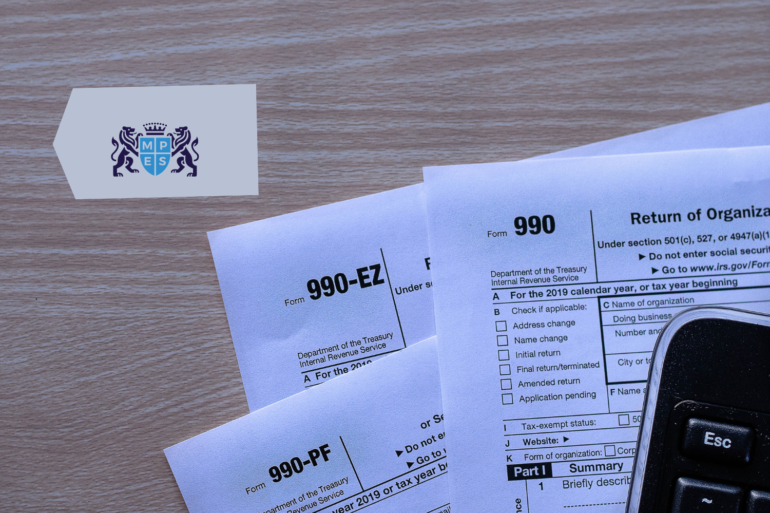With changing regulations and the constant fear of penalties, tax compliance can feel like an endless challenge for business owners. But staying compliant doesn’t have to be overwhelming. Understanding key strategies simplifies the process, reduces tax liabilities, and protects your business from costly mistakes. Whether you’re a startup or a growing enterprise, mastering these tax compliance hacks will give you peace of mind and financial stability. If you are pursuing the ACA Professional Level, these insights will also enhance your tax knowledge, helping you stay ahead in business and finance.
Let us examine all the ten hacks that will help you streamline tax compliance and keep your business financially secure.
Table of Contents
- Keep Accurate and Updated Records
- Understand Your Tax Obligations
- Separate Business and Personal Finances
- Leverage Tax Deductions and Credits
- Pay Taxes on Time to Avoid Penalties
- Stay Updated on Tax Law Changes
- Hire a Professional Accountant or Tax Advisor
- Use Technology for Tax Automation
- Implement a Tax Planning Strategy
- Prepare for Audits Before They Happen
- Conclusion
- Keep Accurate and Updated Records
Tax compliance lies mostly on accurate record-keeping. Mistakes or audits can result from inaccurate or absent records. Keeping receipts and financial records for at least six years guarantees seamless tax filing. Accounting software application such as QuickBooks or Xero can help automate bookkeeping and reduce mistakes. Monthly bank transaction reconciliation helps companies find early differences and prevent compliance problems.
- Understand Your Tax Obligations
Depending on its location and structure, every business has unique tax obligations. Payroll taxes, VAT, and corporation taxes are examples of common responsibilities. Heavy penalties may result from noncompliance. Keeping abreast of tax laws and deadlines is crucial. Businesses can manage tax rules and ensure compliance while avoiding expensive legal concerns by speaking with a tax professional or using online tools.
- Separate Business and Personal Finances
Combining personal and business funds raises the danger of an audit and makes tax filing more difficult. To keep track of transactions independently, open a second company bank account. For efficient financial management, consider using netsuite bookkeeping services. Rather than taking out sporadic withdrawals, pay yourself a fixed salary. Maintain accurate records and classifications of all business expenses. Tracking deductible spending, keeping accurate records, and ensuring seamless tax compliance without needless complications are all made easier by this division.
- Leverage Tax Deductions and Credits
Due to their failure to collect tax credits and deductions, many businesses overpay taxes. Common deductions include software purchases, business travel, and home office costs. Training expenses, such as those for the ACA Professional Level courses, may be deductible. Recording all expenses guarantees that companies maximise tax savings while maintaining tax law and regulatory compliance.
- Pay Taxes on Time to Avoid Penalties
Late tax payments have penalties and additional interest that impact cash flow. Consider signing up for automated tax payment systems and setting up notifications for tax deadlines. Better financial management results from scheduling quarterly tax payments rather than waiting until year-end. By ensuring timely filing, working with a tax specialist lowers the chance of noncompliance and needless penalties.
- Stay Updated on Tax Law Changes
Unintentional non-compliance might result from not keeping up with the constant changes in tax legislation. Attend expert tax courses, follow government tax portals, or sign up for tax updates. By staying educated, businesses may take advantage of new credits and deductions while ensuring they follow updated requirements and avoiding needless fines or legal issues.
- Hire a Professional Accountant or Tax Advisor
Hiring a competent accountant can help you maximise your tax approach, even if you know the fundamentals of taxes. A tax professional ensures that your earnings and outlays are appropriately categorised, enabling you to benefit from deductions while maintaining compliance. They help manage tax audits and regulatory changes to save time and avoid costly mistakes.
- Use Technology for Tax Automation
Mistakes and misreporting are more likely when tax calculations are done by hand. Accurate reporting, cost tracking, and tax filing automation are all possible with programmes like Xero, QuickBooks, and TaxJar. Real-time financial data is provided by cloud-based accounting software, which lowers compliance risks and assists companies in making wise tax decisions. Time is saved, and tax submission accuracy is guaranteed when tax management is automated.
- Implement a Tax Planning Strategy
Avoiding last-minute financial strain and compliance problems is possible with proactive tax planning. Estimate your tax obligations ahead of time and make calculated adjustments to your spending and deductions. To maximise tax payments, effectively plan payroll structures. Tax planning maximises savings on tax payments while assisting firms in making prudent resource allocations and guaranteeing compliance.
- Prepare for Audits Before They Happen
Although a tax audit can be stressful, risks can be reduced with preparation. Maintain thorough records of your receipts and tax filings. All company transactions should be documented to support deductions. By having a professional evaluate your tax returns regularly, you can keep your company audit-ready and lower your risk of fines and compliance problems.
Conclusion
Using these clever tips, staying tax-compliant need not be difficult. You may maximise tax savings and shield your company from fines by maintaining accurate records, taking advantage of tax deductions, and utilising automation solutions. Knowledge is crucial whether you’re handling your taxes alone or with expert assistance. By taking courses from MPES Learning, you can improve your taxation knowledge and keep your company safe and compliant.






